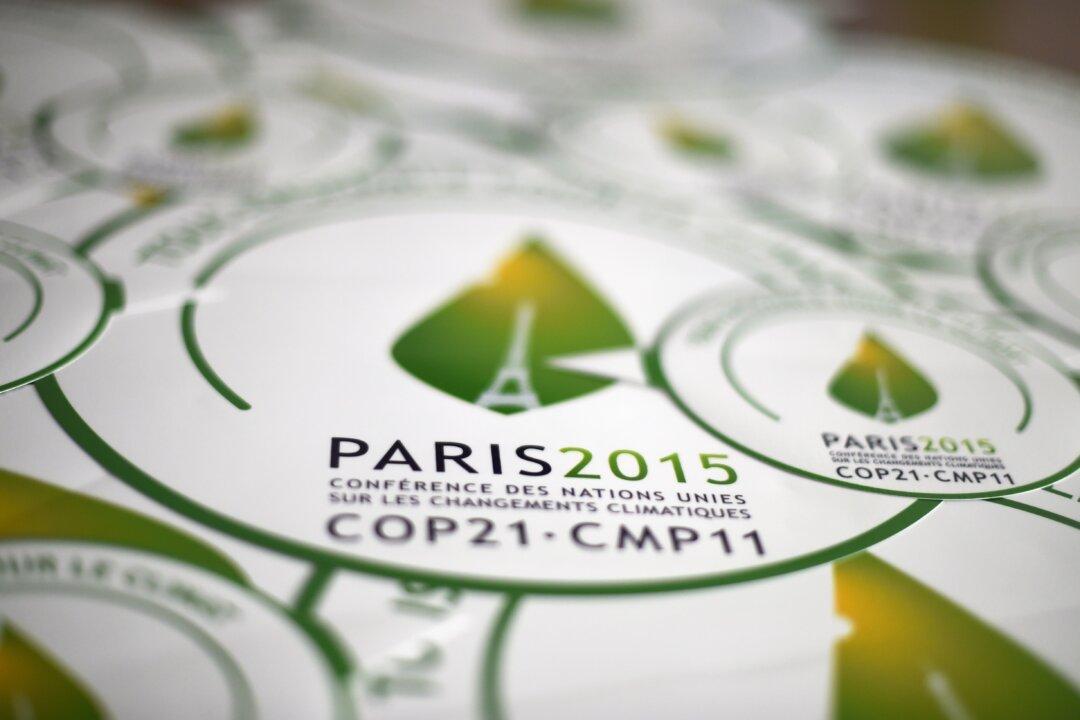LE BOURGET, France—Sleep-deprived and increasingly tense, diplomats and climate negotiators outside Paris struggled Thursday to narrow down a 29-page draft of an unprecedented deal to tackle climate change— but countries remained at odds on critical issues a day before the organizers’ deadline for an agreement.
U.S. Secretary of State John Kerry reached out to two major developing nations — Brazil and India — and is expected to meet other negotiators as the Obama administration works for a deal that reflects its concerns about global warming but doesn’t require congressional approval.
Climate negotiations continued until about 5 a.m. Thursday (0400 GMT, 11 p.m. EST Wednesday) before resuming midmorning, and a new draft accord is expected to be released sometime during the day, a French diplomat said. He spoke on condition of anonymity because he wasn’t authorized to speak publicly about the negotiations.
The draft released Wednesday left major issues unresolved, including the long-term goal of an eventual accord, and which countries should pay to help the most vulnerable nations cope with global warming.
The French organizers of the two-week talks want a final agreement by Friday night, though U.N. climate conferences rarely end on time.
This time is different from past talks, because the French organizers pushed countries to set their own emissions targets before the Paris conference, and the U.S. and China, who have clashed over climate in the past, bridged key differences earlier this year.





